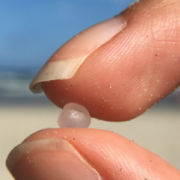(Thread IKs:
Stereotype)
|
jokes on him electric cars never made any difference
|
|
|
|

|
| # ? May 26, 2024 23:49 |
|
still awed that KSR’s fictional shoot the planes down probably won’t be necessary thanks to neoliberalism, the planes will just fall out of the sky on their own!
|
|
|
Scarabrae posted:still awed that KSR’s fictional shoot the planes down probably won’t be necessary thanks to neoliberalism, the planes will just fall out of the sky on their own! boeing has gone woke
|
|
|
|
|
This thread has made me realize that even if my own behavior barely matters in the extreme, airplanes are a lot loving worse than I thought and I am trying to understand if "just never loving fly again" is something I can do. I bet I can come pretty close. This is on my mind because my parents are about to move from being a 6hr drive away to being a 14hr drive, and I am trying to understand what this means for my relations with them. One supposes if they really wanted to see me, they could have moved here instead of loving Tennessee (where one of my siblings is). Anyway, that got me crunching numbers on what our actual "footprint" is, and I came up with an interesting factoid that I'm trying to digest, which hinges on the question of "how green is Vermont's grid, actually?" -- the state loves to tout that our grid is entirely renewables (https://www.eia.gov/state/analysis....e%20generation.) Looking at https://cotap.org/carbon-footprint-calculator/ and some other site that compensates for state-level energy differences, this claims that our pretty staggering use of 21,000 kwh/year, in vermont, only creates 0.04 tonnes of co2, but that the same usage in Texas would be a whopping 13 tonnes. (Cotap is some carbon-offset gaming BS which sends up a danger sign to begin with). I know we have some people who understand the grid a lot better than I do here. I also know that Texas's grid is actually dirtier than Vermont's, and I don't necessarily question the Texas number. My question is what kind of hidden games may be played behind the scenes with that extremely low number for VT, which is almost certainly based on the state's claims of a 100% renewable grid? To me "100% renewable" does not mean "co2 free", by a loving long shot. The trees I chop down and burn are 100% renewable.
|
|
|
|
vermonts grid may be powered by renewables but it is manufactured and maintained using gas and diesel powered machines that are themselves manufactured and maintained using gas and diesel powered machines, ad nauseum
|
|
|
|
https://greenmountainpower.com/energy-mix/ looks like they're using credits to fudge about 10% of it, but still overall thats a pretty amazingly low carbon grid you got there up in that little hippy snow camp you are correct though that that number matters if you're using a heat pump to heat your home, and that number is meaningless if you're using gas or wood to heat your home also a single round trip flight to your parents will cancel out like most of a winters worth of heating if you did have a heat pump
|
|
|
|
Cabbages and Kings posted:I was part of a DEI initiative at the place I worked during the early pandemic, and it didn't feel like an op, as much as it felt like entirely white male management met together with entirely white female HR dept and decided "WOW PEOPLE ARE REALLY UPSET ABOUT THIS FLOYD THING, WE BETTER GIVE THEM AN OUTLET SO THEY FEEL LIKE WE'RE TAKING THIS SERIOUSLY". Then, basically any good or reasonable suggestion that group made was shredded for budgetary reasons and instead we adopted a bunch more Mandatory Training Videos. i worked at a company where the management couped the employee ownership and collective decision making structures at exactly the same time as they started banging the dei drum and sqawking about bye-pawks over zoom calls, it made it all comically transparent
|
|
|
cash crab posted:oh poo poo! that was required reading in school, i have definitely read that. i was already autistic and obsessed with animals so i did not need convincing but yeah, that book is very popular in Canada I guess 60 year old spoilers about the book “never cry wolf”: turns out it’s all made up. mowat wasn’t alone, he had two other biologists with him. he saw wolves once and then went home early or something. his writing is entirely fictional and sections are even plagiarized, and when Canadian literary icon Farley Mowat was confronted with these facts, he just said, “nah!” and there was no consequence at all. lol lmao
|
|
|
|
|
Cabbages and Kings posted:This thread has made me realize that even if my own behavior barely matters in the extreme, airplanes are a lot loving worse than I thought and I am trying to understand if "just never loving fly again" is something I can do. I bet I can come pretty close. This is on my mind because my parents are about to move from being a 6hr drive away to being a 14hr drive, and I am trying to understand what this means for my relations with them. One supposes if they really wanted to see me, they could have moved here instead of loving Tennessee (where one of my siblings is). It does help that Vermont imports more than half its electricity from Hydro Quebec. Its not like that option is available to most other states, especially in that proportion. It is 100% clean, at least with regard to carbon, and renewable. The size and reach of it is impressive but indigenous first nations have paid the price by having their lands flooded and waters positioned with mercury.
|
|
|
|
Zeta Taskforce posted:It does help that Vermont imports more than half its electricity from Hydro Quebec. Its not like that option is available to most other states, especially in that proportion. It is 100% clean, at least with regard to carbon, and renewable. The size and reach of it is impressive but indigenous first nations have paid the price by having their lands flooded and waters positioned with mercury. yeah, like Washington with hydro. it’s so stupid to wave that around as green morals bitches
|
|
|
|
https://www.theatlantic.com/science..._campaign=share nightmare poo poo quote:Maine Is a Warning for America’s PFAS Future Maine spread concentrated human poo poo (full of PFAS already in water from making paper plates water resistant) over farms and destroyed their water. all to save some corporations a little money
|
|
|
|
MightyBigMinus posted:you are correct though that that number matters if you're using a heat pump to heat your home, and that number is meaningless if you're using gas or wood to heat your home honestly, looking at this number has ignited a strong urge to replace the bullshit oil + wood setup that was here when we bought the place, ASAP. It looks to me like if we stopped using oil, our overall co2 footprint would drop staggeringly right there. According to that website, our co2 output from heating fuel use is one hundred and twenty five times our co2 output from electricity. Seems like literally just doing "stick a lovely inefficient space heater in every part of the house" would be a substantial net improvement. I like wood fires, but I'd also be completely content with a heat pump + electric as the primary always-on heat source, only split a half cord of wood a year instead of seven, only have fires on holidays and super cold days and stuff. These are all easy changes to make, which would pay themselves off in a pretty reasonable amount of time. Also I hate the hassle, smell and difficulty of oil and am always worried that in a house fire situation an oil tank is basically a sitting bomb. no lube so what posted:yeah, like Washington with hydro. holier than thou climate poo poo sucks, and I don't give a gently caress if someone with no good supply options is using more energy than I am. I do care if I can meaningfully reduce our own contribution to the ongoing death of everything through basic and affordable changes; even if it doesn't actually matter at all in net, I'll feel better about it. That's peak liberalism I guess, but, also, not burning oil or flying around needlessly seems good. Cabbages and VHS has issued a correction as of 15:17 on Apr 13, 2024 |
|
|
|
Cabbages and Kings posted:honestly, looking at this number has ignited a strong urge to replace the bullshit oil + wood setup that was here when we bought the place, ASAP. It looks to me like if we stopped using oil, our overall co2 footprint would drop staggeringly right there. like get rid of it or just let the system sit with not much fuel and turn it on once or twice a year? I mean, more power and having the ability to go hydro and doing it is cool and good. just wondering if removing the system vs not using
|
|
|
|
no lube so what posted:just wondering if removing the system vs not using The thing that actually provides the heat to the house, is a radiant-heat hot water system that's also connected to the heat system for the hot water tank, and all of that currently runs off an oil burner. So, it wouldn't be "rip out everything", it would be "rip out the oil burner and replace it with a way of heating the water heater and radiant heat, which does not involve burning oil". We've also been having increasing outages of increasing length, so my starting effort here is going to be "how much would it cost to put in solar that could run the heat, water heater, and have enough excess capacity to also run the fridge, freezer, water pump and internet bullshit during an outage". We have the space for panels, I think solar is definitely the first thing I will look at, as well as heat pumps generally. Also figuring out a better thermodynamic setup for my office; it's self-heating during the winter because of several PCs and real good insulation, but becomes insufferable in summer for the same reason.
|
|
|
|
Cabbages and Kings posted:The thing that actually provides the heat to the house, is a radiant-heat hot water system that's also connected to the heat system for the hot water tank, and all of that currently runs off an oil burner. you m sure this is a duh for you, make sure to oversized the heat pumps a good bit
|
|
|
|
JAY ZERO SUM GAME posted:
3.6 roentgen
|
|
|
|
Having some rural area basically destroyed by PFAS is haunting. Most people probably assume that cities or areas near industrial production are the worst, but yikes.
|
|
|
|
Rauros posted:This makes me so sad. https://www.youtube.com/watch?v=fSR3qC88uis
|
|
|
|
Wait 2000 micrograms, that's 2 milligrams. Per liter. Could he taste the pfas??
|
|
|
|
NoNotTheMindProbe posted:jokes on him electric cars never made any difference don’t be such a doomer, electric cars are as good as any other product in our quest to change the environment
|
|
|
|
Cabbages and Kings posted:
yeah, you’re being hella reasonable and getting satisfaction from trying your best given your options. that’s cool.
|
|
|
|
The Oldest Man posted:Wait 2000 micrograms, that's 2 milligrams. Per liter. Milliplastics
|
|
|
|
Microplastics posted:Milliplastics My blood is indistinguishable from Orbitz
|
|
|
|
if you prick me, do i not leak Orbeez?
|
|
|
|
Would be fascinating if blood donation centers started testing for pfas and microplastics in blood to get a wide swath of data. Instead of getting away because my iron is always too low it would be like "sorry your plastic levels are just too high"
|
|
|
|
Cabbages and Kings posted:We have the space for panels, I think solar is definitely the first thing I will look at, as well as heat pumps generally. Also figuring out a better thermodynamic setup for my office; it's self-heating during the winter because of several PCs and real good insulation, but becomes insufferable in summer for the same reason. I dunno how bad it get there, but the weak point of solar + heal pumps is extreme cold with cloud cover and snow on the panels. There's work are ways to work around those problems. Namely using the ground as the heat exchange medium instead of air, by putting one side of the heat pump exchange coils into a deep enough hole. And by having a big enough battery bank, maybe with a backup generator if you could reasonably expect a week with low/no power solar input.
|
|
|
|
Cabbages and Kings posted:It looks to me like if we stopped using oil, our overall co2 footprint would drop staggeringly right there.
|
|
|
|
silicone thrills posted:Would be fascinating if blood donation centers started testing for pfas and microplastics in blood to get a wide swath of data. As someone who works in a blood bank they wouldn't do this unless forced to by the government, so probably never. The associated costs of testing for micro plastics are too high and it would result in the blood supply getting worse than it already is. Hell, plasma centers don't even care if you do meth as long as you aren't doing IV drugs.
|
|
|
|
hypoallergenic cat breed posted:As someone who works in a blood bank they wouldn't do this unless forced to by the government, so probably never. The associated costs of testing for micro plastics are too high and it would result in the blood supply getting worse than it already is. Hell, plasma centers don't even care if you do meth as long as you aren't doing IV drugs. oh yeah I know. they didnt even start testing for HIV until it became an insanely big deal.
|
|
|
|
Anyone who can should definitely donate though. Any sort of apheresis (platelet, plasma, or red blood cell) where your blood gets filtered removes some of the nasty stuff in your blood and you help your community so it's a win-win.
|
|
|
|
hypoallergenic cat breed posted:Anyone who can should definitely donate though. Any sort of apheresis (platelet, plasma, or red blood cell) where your blood gets filtered removes some of the nasty stuff in your blood and you help your community so it's a win-win. doesn't that also mean you're concentrating your latent PFAS in the donated plasma
|
|
|
|
The blood is filtered through a fine mesh and centrifuged to separate out the parts so the majority just gets stuck in the filter, but regardless, most of the time someone who needs a blood transfusion is in an emergency situation so it's an easy trade off to swap deadly blood loss for an extra dose of blood plastics or PFAS.
|
|
|
|
Then it gets sold overseas because USA USA!
|
|
|
|
donating blood so they can filter out the microplastics to turn into net zero coke zero bottles
|
|
|
|
quote:But in reality, sludge often contains a cocktail of chemical residues. “We concentrate them in sludge and then spread them over where we grow food. The initial idea is not great,” lol, lmao
|
|
|
|
JAY ZERO SUM GAME posted:https://www.theatlantic.com/science..._campaign=share the blight is real
|
|
|
|
we've poisoned the earth in such diverse ways nurgle apes
|
|
|
|
hypoallergenic cat breed posted:Anyone who can should definitely donate though. Any sort of apheresis (platelet, plasma, or red blood cell) where your blood gets filtered removes some of the nasty stuff in your blood and you help your community so it's a win-win. donating blood in america helps the community yacht club alright
|
|
|
hypoallergenic cat breed posted:Anyone who can should definitely donate though. Any sort of apheresis (platelet, plasma, or red blood cell) where your blood gets filtered removes some of the nasty stuff in your blood and you help your community so it's a win-win. lol yeah my community is very aware and conscientious about each other’s health
|
|
|
|
|

|
| # ? May 26, 2024 23:49 |
|
HAIL eSATA-n posted:donating blood in america helps the community yacht club alright Not really the thread for it but yeah, for-profit healthcare sucks rear end. The plasma from plasma donation centers is used in industrial applications instead of for patients and the hospitals charge way too much for a transfusion so it's not used very effectively. It also sucks rear end though when we can't get an immediate match for someone who really needs it right away and we have to wait for a rare blood center to ship it in 3-5 days or just give them unmatched blood and hope they don't have massive systematic clotting. More on topic for the thread, healthcare currently uses a huge amount of single use plastic hypoallergenic cat breed has issued a correction as of 15:28 on Apr 14, 2024 |
|
|












































